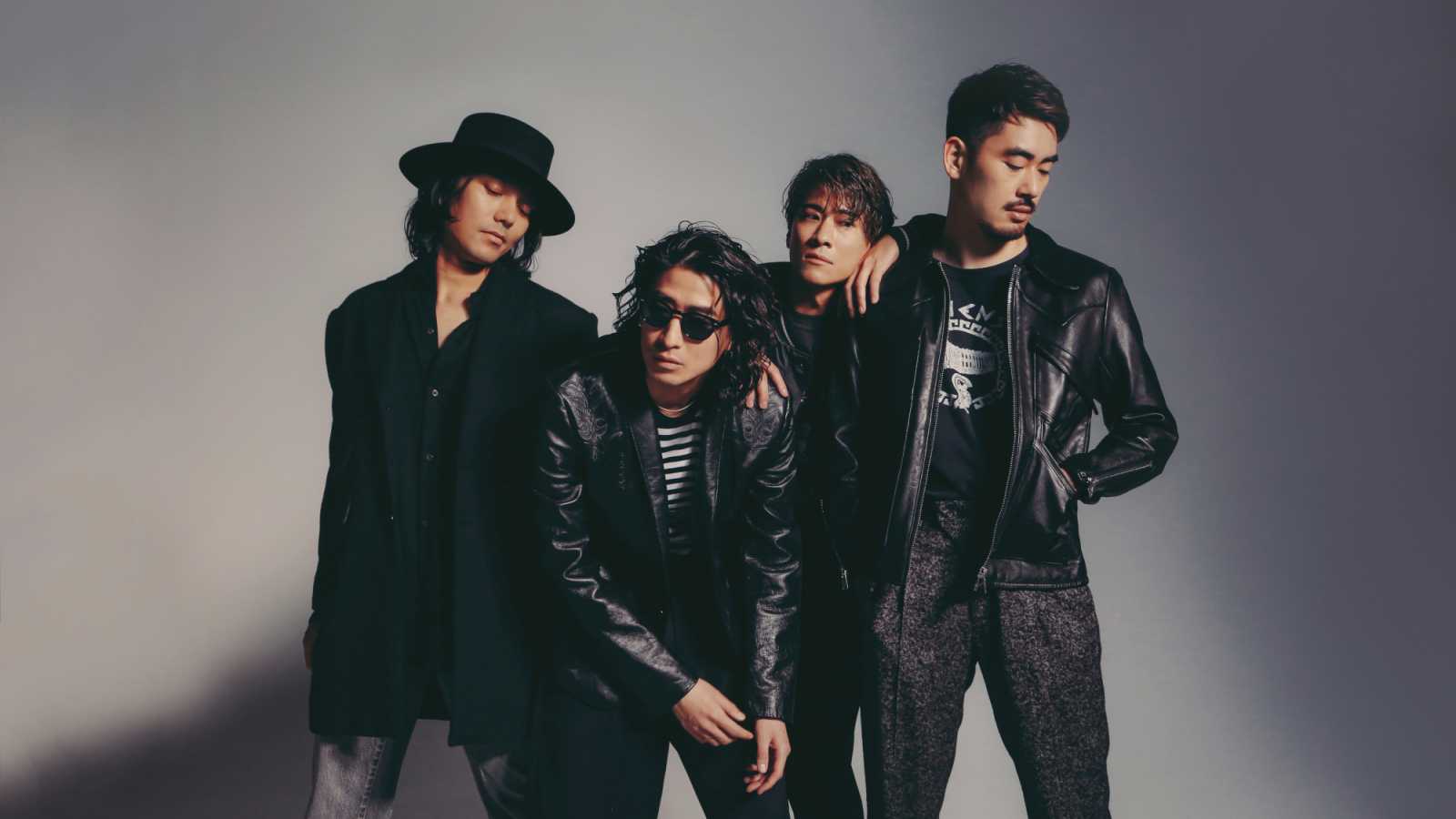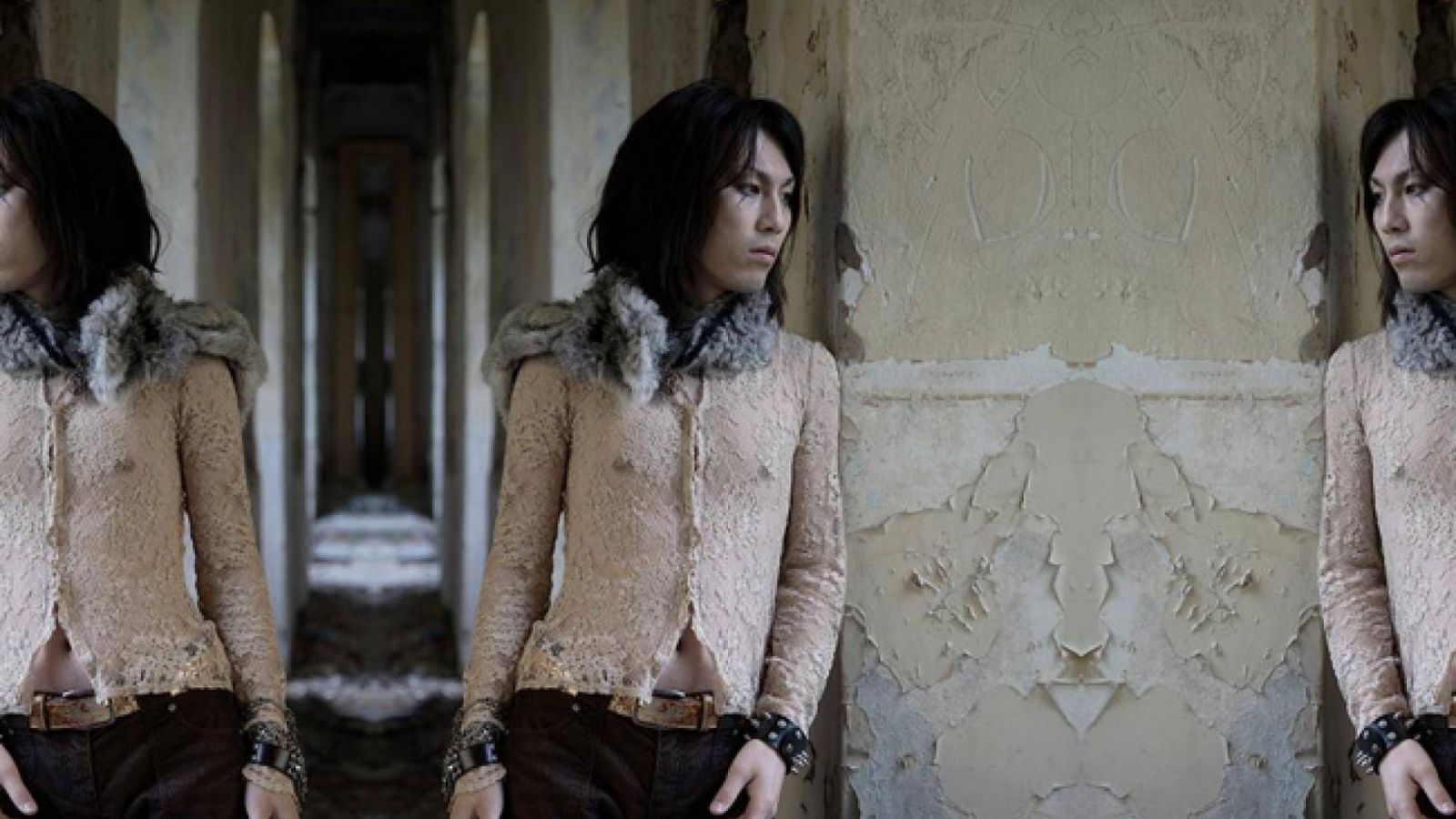Kisaragi is a Japanese artist, but currently situated and working in Europe. His music style seems to be indescribable; one can find elements of traditional Japanese music, pop ballads, dance, rock, and classical music in his songs. With his unique outlook and quirky sense of humor, he kindly took some time to answer our questions.
Thank you very much for finding the time to do an interview with us! First of all, we would like to ask you to introduce yourself: who is Kisaragi?
Kisaragi: Even though my name
Kisaragi means 'February', the month when everything is frozen, my emotions are still on fire. The only place where
Kisaragi can exist is inside of sound which can freeze and melt at the same time. If such a feeling exists, I would call it "
Kisaragi".
How would you describe your own music?
Kisaragi: Sharp, Japanese instruments inside of electronic Gothic.
What made you decide to become a musician?
Kisaragi: I think anybody who decides to be a musician is insane; you have to be crazy to enter the music world. I didn't decide to be a musician. I was born with this curse.
What do you think are both the good and bad points about being a musician?
Kisaragi: I'm the first one to hear my indescribable emotions from the speakers in the studio. That feeling is the greatest feeling of all. The worst thing is that my family is not interested in my music at all. (laughs)
How do you usually compose your songs? Is there anything in particular that inspires you?
Kisaragi: Before I got serious with music, I was professionally trained in calligraphy. I used to compose music just like other artists, but one day I was looking at a red colored calligraphy picture on my table and I started to hear the sound of the letter. That's how I composed
Sonzai. The calligraphy letters inspire me to write music which is sharp, shocking, disturbing, and overwhelming. When I look at these letters, I feel little bit of Japanese exorcism.
Your music is described as: "The shocking sound of Kisaragi's new album is blended with colors of electronical and classical piano drum and base, Koto, Shako-hachi and breathtaking colors of Kisaragi voice, which start the revolution and the future sound of Japan." What made you decide to use such unique combinations of instruments and sounds?
Kisaragi: I know it is an unusual combination. When I meet music producers, they are confused about finding a category. But when I was in the studio recording and bringing together different instruments, I didn't realize it would have such an impact. I guess I feel comfortable at this edge, but at the same time, this kind of arrangement has one negative point: you can't listen to this as background music. You can't relax and sometimes it's difficult to breathe. I think it is because of the connection with the instruments surrounds you in a different way.
Is it your intention to start a new music style or are you just looking for music that sounds good, regardless whether it's totally unique or not?
Kisaragi: If I were a fashion designer, I would be ashamed to copy Jean Paul Gaultier or Vivienne Westwood even though I like them. In music, it's pointless for me to fit into some form.
Could you tell us more about your newest album?
Kisaragi: I've asked the same question to the ex-prime minister of Japan, Mr. Koizumi, to whom I've been writing quite recently but he didn't write back yet again. So I think his security didn't give him my CD. (laugh)
On the album, there is a cover of Endless Rain
by X JAPAN. Could you tell us why you chose this particular song to make a cover of?
Kisaragi:
X JAPAN has eternal songs. Nobody can make the cover better than the original. But when you make the cover, you bring back forgotten moments in your life, feelings from many years ago. And many people told me after they heard '
Endless Rain' on my album, they wanted to hear the original again. So they searched their old CD to listen to
X JAPAN again. I like the circle.
How did the process of writing, arranging and recording go?
Kisaragi: First, I have to prepare food for when I go to the studio. Then I finish the arrangement on the stairs in front of recording room. Inside, I start arguing with my manager about the arrangement. So I usually send her out and give her my sandwich. After we record, the producer, Hideki, comes in and tells us the change the drums or something. So basically, I just have to yell at everybody before I can finish anything. But I think in every group, the loudest ones have the final decision. (smiles)
You lived in Europe while you recorded it, but you worked together with musicians in Japan. How did that go?
Kisaragi: The Japanese instruments were recorded in Japan and the European in Europe. Because the mixing is also done in mainly one studio, it was a very smooth process. I like that the European engineers worked with Japanese instruments with a lot of respect and still created an electronic future.
Its quite unusual that a Japanese artist lives and produces his songs in Europe. Why did you decide to live in Europe?
Kisaragi: Maybe it is strange, but I feel that I have lived in Europe in my previous life. I admire Europe because of its unlimited art emotion. In Japan the art is not so free, and always false under certain standards.
Are there any big differences between working in Japan as a musician and in Europe?
Kisaragi: In Japan we like to depend on each other, but in Europe I had to learn to depend on myself.
Do you perform in Europe, or wish to perform in Europe as well?
Kisaragi: I would like to stay in Europe as long as possible and so it is essential for me to compose and perform here. I am glad to receive the chance to perform in any country.
Lately, more and more Japanese artist release things in Europe and perform here and it is almost turning into a hype. What do you think about this?
Kisaragi: The Japanese film and fashion boom hit Europe a couple years ago and finally the music came along.
Aren't you afraid that people will like you for the fact you're Japanese, instead of actually appreciating your music?
Kisaragi: I don't know how to answer this question, but I would like to ask you one thing: Did people start to notice Madonna because of her conical breasts costume or because of the song she was singing? If both visual and artistic combine in harmonizing way, then we become alive.
What are your plans for the future in both Europe and Japan?
Kisaragi: I would like to connect with Japanese rock/electronic and traditional musicians living in Europe to create an amazing visual sound live show.
Please give a message to our readers.
Kisaragi: I hope my album fullfills you in a new way. Let the future come to you and let it be shocking.
Thank you very much for the interview and we wish you good luck with your career.
---
To find out more about
Kisaragi, check out his
Official site. Samples of his newest album
Sonzai can be found
here.
Thanks to Multisound Japan.





